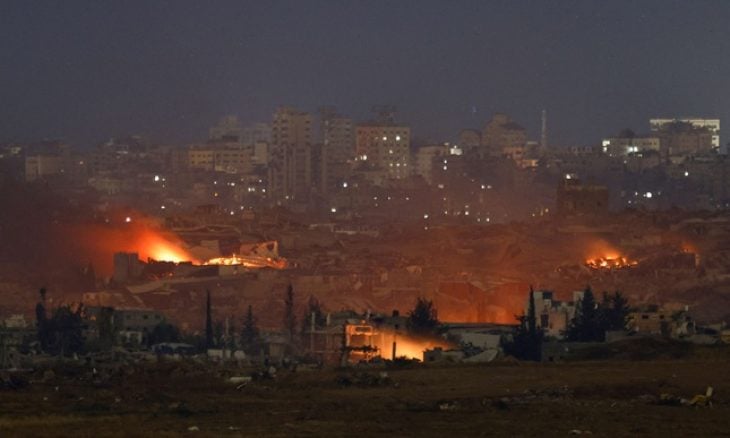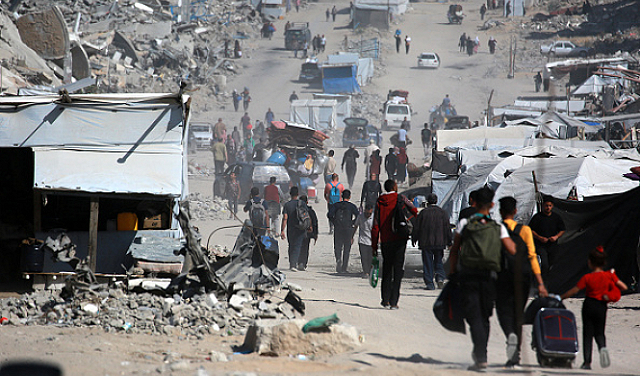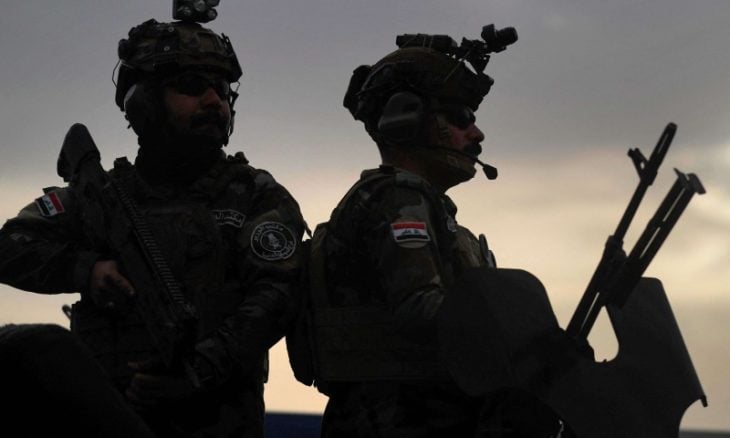Distinguished members of the diplomatic corps, representatives of their countries in Palestine,

Distinguished members of the diplomatic corps, representatives of their countries in Palestine,
Distinguished representatives of media outlets, media channels, and representatives of human rights and humanitarian organizations,
First, we welcome your visit to Tulkarem with the warmest welcome, and we hope that your visit will result in a close look at the practices of the occupation and what the occupation forces are committing against the residents and their properties in the city, camps, and towns in the governorate, and the siege of the governorate with iron gates with the aim of destroying all economic components. This requires you, gentlemen, representatives of countries and media outlets, to expose the Israeli practices by reading what is going on in the Israeli mindset and what is carefully planned and targets cities in the northern West Bank that Israel considers its security belt and are surrounded by settlements and settlers.
Tulkarem is within the systematic targeting plan, and the occupation government seeks to restrict its residents, economically suffocate them, destroy its infrastructure, and confiscate what remains of agricultural land under the pretext of achieving security. It destroys the camps, besieges the city, and destroys its infrastructure through daily invasions and the continued presence of occupation forces and disruption of citizens’ lives.
Let us remind you of the statements of the Minister of Finance and head of the Civil Administration, Smotrich, as well as the statements of the Minister of Internal Security, Itamar Ben-Gvir, who are members of the right-wing coalition government headed by Netanyahu, the most extremist in the history of the establishment of the Israeli entity, and their incitement to racism and imposition of apartheid policy on the Palestinian residents within a strategy to turn the cities of Tulkarem, Jenin, and Tubas, and towns in the northern West Bank into ruins. Bezalel Smotrich called for the destruction of the city of Tulkarem and turning it into something like the cities of the Gaza Strip. The extremist Minister of Finance returned to say that Tulkarem must become a “city of ruin.” According to the Israeli security concept, there must be a radical change in everything related to the West Bank, Gaza, and the north.
All of this is within the strategy and policy of land grabbing and seizing land within the policy of colonial racist expansion. The issue of the apartheid wall returns again, preventing farmers from cultivating their lands beyond the wall. They have begun bulldozing hundreds of dunams and are threatening the owners of houses adjacent to the wall under the pretext of security for the settlers. The new measures by the occupation authorities threaten many towns in the Tulkarem governorate, as the occupation forces have begun placing concrete slabs along the fence, specifically behind it in the Qaffin area, which separates the town from its agricultural lands, extending from the beginning of the Akaba gate towards the south to the lands of Qaffin, a distance of about one and a half kilometers.
Heavy machinery with large trucks can be seen transporting the concrete pieces, while other machinery is digging the foundations and fixing the slabs at a height of 8 meters, which has completely blocked the view, thus depriving farmers of seeing their lands and completely isolating them from them, which evokes tragic feelings that increase the suffering of the farmers.
The occupation authorities are seeking to impose a new reality on the Palestinian towns, which have been subjected to the theft of thousands of dunams of their olive-planted lands since 1948, through 2002, for the benefit of the wall, where the plan of restriction and economic suffocation is being completed.
It is worth noting that Tulkarem, the governorate located in the northwestern occupied West Bank, faces numerous Israeli plans and has recently become a focal point of the occupation’s targeting, as part of attempts to impose a fait accompli. Throughout the governorate, there are 4 settlements, 5 settlement outposts, two Israeli army camps, 6 fixed military checkpoints, 5 solid and liquid waste dumps, and many settlement factories, in addition to the separation wall, which has created a complex geographical environment that has torn apart Palestinian neighborhoods and turned them into isolated islands.
In addition to the repercussions of the division imposed by “Oslo” on the West Bank, and its distribution into areas “A”, “B”, and “C” without any connection and different administrative references, the occupation exploited the agreement and placed most of the lands belonging to Tulkarem under its security control by classifying them as areas (C).
The area of Tulkarem governorate is 246 sq km, which is about 4.4% of the total area of the West Bank, and it includes 35 population centers.
Over the past years, there has been continuous settlement expansion in the area through the expansion of existing settlements; because they represent, in the Zionist strategy, an area with long-term security and political dimensions. According to the occupation leaders, the absence of strategic depth for their entity, especially in the vital heart area in the coastal strip, extending from Haifa in the north to Ashkelon in the south, which is inhabited by the majority of the occupiers and contains most of the economic activity, pushes for strengthening settlement in the West Bank, especially in the “narrow waist of Israel,” which is no more than 14 km wide between the West Bank and the coast.Accordingly, the Israeli security strategy in Tulkarem, as in Jenin and Tubas, aims to bring about a geographical and demographic change that provides the center of the Zionist entity with a population depth that protects it on its fringes, and confines Arab citizens in the area to besieged, isolated, and controlled areas, ensuring they do not expand. The apartheid wall extends along the western side of Tulkarem, parallel to the “Green Line”, for a length of 32 km, penetrating the governorate’s borders at varying depths, the maximum being 6 km at the villages of Al-Ras and Khirbet Jabara. The wall’s path cuts through the borders of 17 villages in the governorate, in addition to the city, destroying 6043 dunams. The occupation authorities are no longer content with this, but in their new plans, under the pretext and excuse of security, they are expanding beyond the wall, seizing thousands of dunams, establishing checkpoints and gates, and invading cities, camps, and towns to destroy infrastructure and turn areas into ruins to complete the Zionist plan of settlement expansion and land confiscation under the pretext and excuse of achieving security, a justification used by the occupation governments to pass plans for forced and voluntary displacement and Judaization.
Esteemed members of the diplomatic corps, representatives of their countries in Palestine,
Esteemed representatives of media outlets and channels, and representatives of human rights and humanitarian organizations,
According to the resolutions of international legitimacy and the ruling of the International Court of Justice, the West Bank, Gaza Strip, and Jerusalem are occupied territories. The International Court’s decision may include that the continued presence of the State of Israel in the occupied Palestinian territory is illegal; that the State of Israel is obligated to end its illegal presence in the occupied Palestinian territory as soon as possible;
That Israel is obligated to immediately cease all new settlement activities and evacuate all settlers from the occupied Palestinian territory;
That Israel is obligated to provide compensation for the damages inflicted on all Palestinian men and women or relevant legal persons in the occupied Palestinian territory.
The occupation government and its forces are obligated to stop their aggression on the camps in Tulkarem and Jenin, and are obligated to compensate the residents and bear the cost of rebuilding the camps, and are obligated at the same time to stop their aggression and invasion of the cities of the West Bank and stop the war on Gaza.
Although the laws of occupation are contained in many instruments of international humanitarian law and its legislative sources, the rules of the law of occupation generally share the same logic, which is based on four basic and general principles:
First, the rules of the law of occupation reflect the principle that the occupying power does not acquire sovereign rights over the occupied territory. Therefore, it cannot make changes to the status and essential characteristics of the occupied territory.
Second, the rules of the law of occupation reflect the principle that occupation is a temporary situation. In this regard, the occupying power must maintain the status quo and not adopt policies or measures that would lead to permanent changes, especially in the social, economic, and demographic fields. As a result, the rights and obligations of the occupying power stipulated in the law of occupation are also temporary rights and obligations; they are limited to the duration of the occupation. These rules essentially require the occupying power – during the temporary period of occupation – to maintain life as normal as possible in the occupied territory and to administer the occupied territory for the benefit of the local population, taking into account its own security needs.
Third, the rules of the law of occupation governing the exercise of authority by the occupying power require it to always take into account and balance two interests: its own military needs, and the needs of the local population at the same time. The occupying power must reflect this balance in the way it administers an occupied territory and more generally in all actions it takes and policies it implements in that territory. Most importantly, while this balance may sometimes be determined in favor of the security needs of the occupying power, the rules of the law of occupation never allow the occupying power to completely disregard the needs of the local population in the actions it takes.
Fourth, it can generally be said about the rules of the law of occupation that they do not allow the occupying power to exercise its authority in order to promote its own interests (other than its military interests), or with the aim of using the population, resources, or other assets of the territory it occupies for the benefit of its own territory or population.
These four general principles should be taken into account in all matters related to the law of occupation, as they support the main provisions of this law.
According to all of this, we clarify the following facts to you and hope that they will be under the responsibility of your governments and that serious and immediate action will be taken to put an end to the Israeli excesses, considering that it is a state above international law:-
First:- The Israeli occupation government disregards international legitimacy resolutions, ignores its responsibility as an occupying power on the ground, and practices a brutal aggressive policy, heedless of all signed agreements, including the Third and Fourth Geneva Conventions. The use of excessive force in itself is a war crime, and any attempt to change the existing situation and harm the security of citizens in the occupied territory is a crime that falls under the category of apartheid and genocide.
Second: What the northern governorates are witnessing, especially the camps, and what the residents and their property are subjected to, is a crime for which the international community is accountable, as well as for its failure to act and hold the occupying state accountable and set limits to its blatant violation of all international laws and conventions.
Consequently, the International Committee has repeatedly stated that the Israeli settlement policy is contrary to the main provisions of international humanitarian law, specifically the law of occupation, and is inconsistent with its essence and purpose. The Fourth Geneva Convention of 1949 prohibits the occupying power from transferring its own population into the territory it occupies. Therefore, the Israeli settlement policy in the West Bank is contrary to the Fourth Geneva Convention.
Settlement expansion – whether through the official expansion of existing settlements or through the largely unrestricted spread of unauthorized outposts – is the main source of legal and humanitarian concerns in the West Bank. With its continuous presence in the occupied Palestinian territory for decades, it threatens security and stability after the settlement movement has turned into militias and been supplied with weapons through the decision of the Netanyahu government. The International Committee has witnessed the impact of settlements, as they restrict the freedom of movement of Palestinians and affect the social and economic fabric of entire communities. They can also restrict Palestinians’ access to their agricultural land, natural resources, or medical services. They also contribute to the outbreak of violence between Israeli settlers and Palestinian communities.
In general, the destruction of private property by the occupying power is prohibited except under certain circumstances. This includes when it is absolutely necessary for military operations, or when dictated by planning policies that should be in the interest of the occupied population.
The use of force during law enforcement operations must be assessed on an individual basis each time, and legal standards of necessity, proportionality, and precaution must be respected to avoid loss of life and prevent further escalation of violence. Lethal force can only be used as a last resort and only when there is an imminent threat to life.
In this regard, international humanitarian law requires Israel to ensure, to the maximum extent possible with the means available to it, that the basic needs of the population are met and that the occupying power is not used to commit murders and massacres with the intention of intimidating and coercing citizens and pushing them towards voluntary and forced displacement.
We demand from you, through your visit and your observation of the tragedy suffered by the camps in Tulkarm camp and Nour Shams camp, and what the Tulkarm governorate in particular is suffering from in terms of siege, restriction, and economic strangulation, an urgent request from your governments to take immediate action and request an urgent session of the Security Council to fulfill its full responsibilities towards the State of Palestine as an observer member of the United Nations, and for the international community, represented by the Security Council, the General Assembly of the United Nations, the Human Rights Council, and international organizations of all types and names, to bear the responsibility of putting an end to Israeli excesses and its rebellion against international laws and conventions and its disregard for international legitimacy resolutions. This exposes the United Nations to losing its credibility and establishes the foundations of the law of the jungle, which requires speed and prosecution of the Israeli entity for its crimes and calling for an urgent meeting of the Security Council to issue a binding resolution to stop Israel’s crimes and massacres and end the occupation under Chapter VII and impose sanctions on Israel to compel it to respect the principles and charter of the United Nations so that the United Nations does not lose its justification for existence in the event of continued Israeli bullying and its rebellion against international resolutions and its exposure of international peace and security to danger.
We note that the oldest Security Council resolution – Resolution No. 237 – was adopted unanimously on June 14, 1967, and in it Israel was called upon to ensure the safety, rights, and interests of the inhabitants of the occupied territories, in accordance with the Fourth Geneva Convention.On September 27, 1968, the Security Council, in its Resolution 259, regretted the delay in implementing its resolution issued on June 14, 1967, and again requested the Secretary-General to send a special representative on his behalf to the “Arab territories under Israeli military occupation after the June 5, 1967 war,” in order to report on the implementation of the previous Security Council resolution. The Security Council also requested Israel to receive the Special Representative of the Secretary-General, cooperate with him, and
facilitate his work. Israel again refused to receive the Secretary-General’s representative, thus preventing any international investigation on the ground regarding its treatment of the civilian population and regarding complaints of its human rights violations in the occupied territories.
On December 19, 1968, the United Nations General Assembly decided to form
a special committee to investigate Israeli practices affecting the human rights of the civilian population in the occupied territories. However, Israel did not allow this committee to visit the occupied territories. But the Special Committee, despite Israel’s refusal to cooperate with it, proceeded with its investigations and submitted a report to the General Assembly stating that Israel was pursuing “policies and practices that violate the recognized human rights of the inhabitants of those territories” in the occupied territories. The Special Committee pointed out that Israel was establishing settlements in the occupied territories and stated that “the occupying power is pursuing a conscious and deliberate policy aimed at emptying those territories of their inhabitants.” On December 15, 1970, the General Assembly called on Israel to immediately implement the recommendations of the Special Committee and to fulfill its obligations under the Geneva Convention of August 12, 1949, concerning the protection of civilians in time of war, the Universal Declaration of Human Rights, and all resolutions issued by various international organizations. The General Assembly also requested the Special Committee to continue its work to ensure the protection of the rights of the inhabitants of the occupied territories. But Israel, once again, disregarded this resolution.
Another significant resolution was issued by the Security Council on March 22, 1979, Resolution 466, which “reaffirms that the Fourth Geneva Convention relative to the Protection of Civilian Persons in Time of War, of August 12, 1949, is applicable to the Arab territories occupied by Israel since 1967, including Jerusalem.”
During the years 1988, 1989, and 1990, the United Nations took resolutions on this matter stemming from the same spirit, expressing the broad international consensus regarding Israel’s application of this convention. Each new United Nations resolution began with a list referring to the unimplemented resolutions, which was clear evidence of a surprising and prolonged inability on the part of the international body towards Israel. The list continued to grow steadily, and with it, Israeli arrogance, even Israeli contempt for it, increased.
One of the last of these resolutions was Resolution 681, issued by the Security Council on December 20, 1990, which condemned Israel for expelling four Palestinians and violating Article 49 of the Convention, and which reaffirmed the necessity of applying the Convention to Israel. The Israeli Prime Minister, Yitzhak Shamir, declared that this resolution would remain in the archives covered in dust, like its counterparts, and no one would pay attention to it. These were not just arrogant and insulting words directed at the international community; they were followed by an order to expel 12 Palestinians on January 2, 1992. The families of the deportees held a press conference in Jerusalem and issued an appeal to the world, accusing the international community of ignoring the human rights of Palestinians and being lenient towards illegal Israeli practices, thus enabling Israel to do as it pleases.
Distinguished members of the diplomatic corps, representatives of their countries in Palestine,
Distinguished representatives of media outlets and channels, and representatives of human rights and humanitarian organizations,
Israel commits flagrant violations of the Third and Fourth Geneva Conventions and the Hague Regulations (violations that amount to war crimes), as defined in Article 147, cited in Section (1). Article 146 stipulates that a state is legally obligated to prosecute individuals who commit such crimes.
Article 148 of the Convention, in its wording, which clearly defines the absolute nature of these violations, emphasizes that “No High Contracting Party shall be allowed to absolve itself or any other High Contracting Party of any liability incurred by itself or by another High Contracting Party in respect of breaches referred to in the preceding Article.”These two articles of great importance are binding on the other High Contracting Parties; they reinforce the argument that the States signatory to the Convention are obligated to intervene to ensure respect for the Convention, in all circumstances, in the mutual relations between the States stipulated in Article 1 of the Convention.
In addition, there are sections of the Convention that are considered “customary law and more, as they are considered a law of nations that establishes criminal responsibility and universal legislation for all people.” In the opinion of Professor Antonio Cassese, these principles apply to the case of Israel in the areas of torture, lack of freedom of assembly, and racial discrimination.
In light of the foregoing, and taking into account the daily human rights violations suffered by the residents of the occupied territories, which have recently intensified, the time has come for the States signatory to the Fourth Geneva Convention to intervene, as follows:
To apply all the provisions of the Convention to Israel, and to demand that Israel abide by these provisions from now on.
In the event that Israel persists in refusing to comply, to request the Security Council to appoint a protecting power, as stipulated in the Convention, in order to protect the residents of the occupied territories in the spirit of the Fourth Geneva Convention.
It is clear that such a decision cannot be adopted unless the United States does not oppose it by using the veto, as it has done repeatedly in the past, and if it ceases to act according to a double moral standard (compare the case of Iraq – Kuwait), and finally realizes that the provisions of international law are a comprehensive whole. Nevertheless, we must point out that in the event of an American veto, “the General Assembly is qualified to act in the event of a veto of a Security Council resolution. This can be done based on General Assembly Resolution 377 (V) issued on November 3, 1950 (i.e., the ‘Uniting for Peace’ resolution); this resolution was relied upon in the cases of the Korean War (1950), the Suez Crisis (1956), and the Congo (1960). Recourse to Resolution 377 (V) issued on November 3, 1950, can be justified according to the provisions of Article 1 of the United Nations Charter, which states that the purposes of the United Nations are ‘to take effective collective measures’ to prevent and remove threats to peace, and to suppress acts of aggression. Such a measure can be justified on the basis of Article 24 of the Charter, which stipulates that the members of the United Nations General Assembly confer upon the Security Council ‘primary responsibility’ for the maintenance of international peace and security, and agree that in carrying out the duties imposed upon it by this responsibility, the Security Council is acting under the authority ‘delegated’ to it by the members of the United Nations General Assembly; and in accordance with general legal principles, if the delegate to whom a power has been delegated is prevented from carrying out what he was delegated to do, then the members of the United Nations – as principals – are qualified to ‘take collective measures’.” They are called upon to take such measures to put an end to the continued Israeli commission of crimes against the Palestinian people and the necessity of providing international protection.
Lawyer Ali Abu Habla / Editor-in-Chief of Sout Al-Orouba Newspaper







